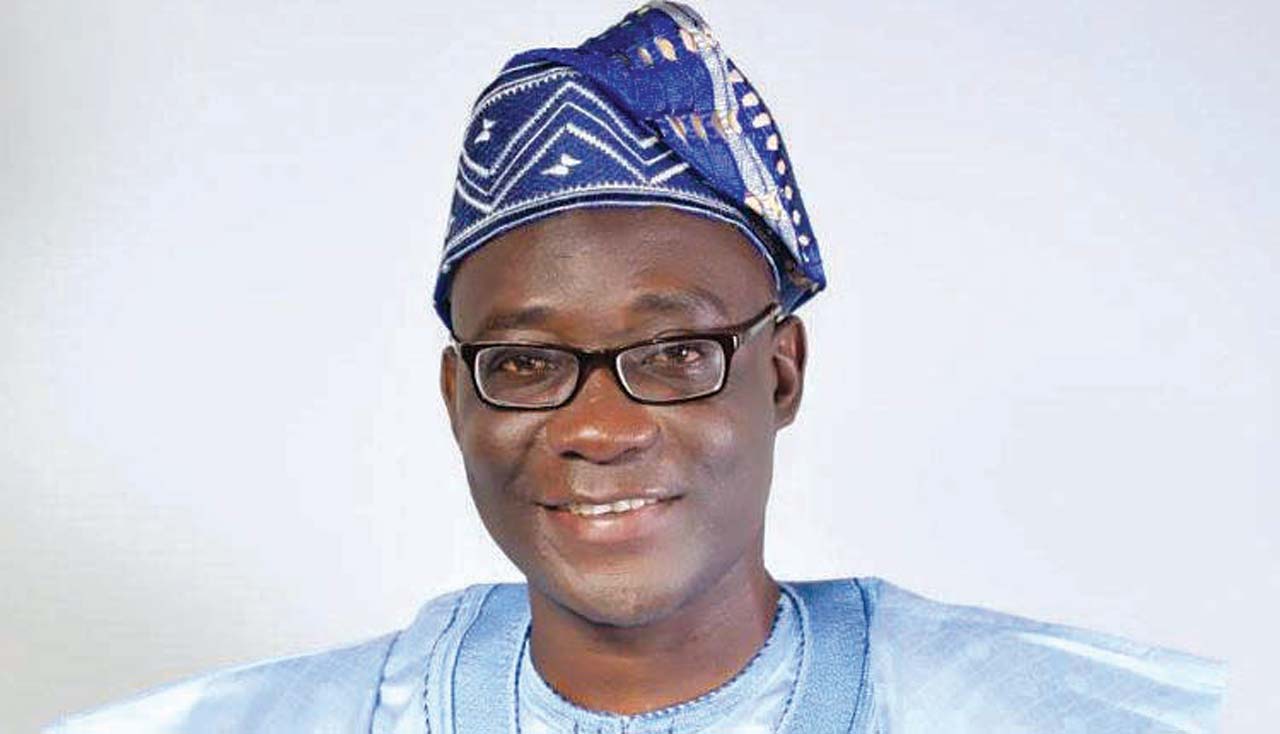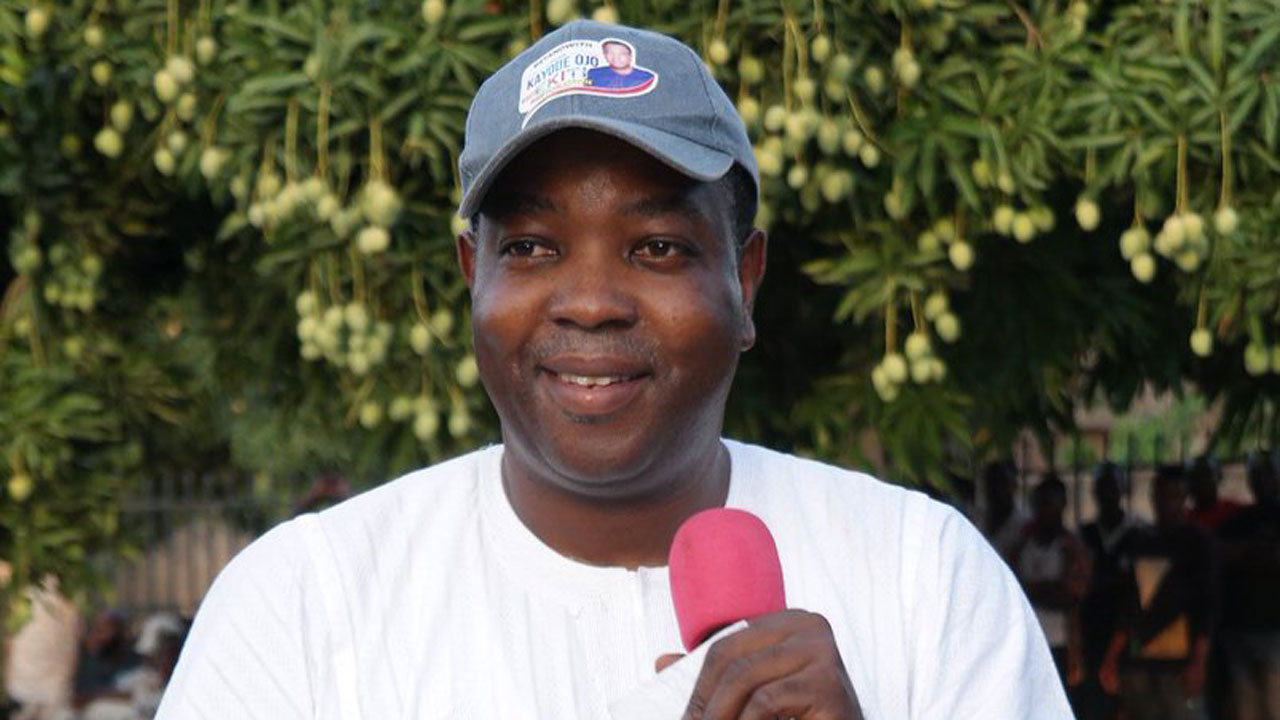
In the 22 years of democratic history of Ekiti State, the northern and central senatorial have bestrode the political landscape and dominated the political space to the exclusion of southern senatorial district.
Within these periods, four eminent political figures from the two zones have rotated power among themselves. They are, Mr Adeniyi Adebayo who was the first elected governor of the state between 1999 and 2003, on the platform of the defunct Alliance for Democracy (AD). Mr Ayodele Fayose, who comes from central senatorial zone with Adebayo, took over from him having won the election on the platform of the Peoples Democratic Party (PDP), and governed from 2003 to 2006, when he was removed from office through a controversial impeachment. This led to political uncertainty and a subsequent imposition of a state of emergency by the then President, Chief Olusegun Obasanjo. In 2007 governorship election, Chief Segun Oni was the candidate of the PDP, while Dr Kayode Fayemi was the candidate of the Action Congress (AC). The two are from Ekiti north senatorial zone and were the main contenders for the governorship position.
It was their protracted legal battle for electoral victory that brought the state into off- season governorship elections. For a period of seven years (2007- 2014), the two political gladiators occupied political space without giving room for the governorship poll to be held.
At the end of the election in 2007, Oni was declared winner after allegedly polling about 170, 000, followed by Fayemi who was said to have polled 108,000. Oni allegedly won in 11 local councils, while Fayemi won in four, while results from Efon Alaye local government was cancelled due to alleged irregularity.
Fayemi approached the election tribunal, which commenced sitting on June 2007 in Ado Ekiti. Justice Usman Bwala headed the five-man panel of justices. Fayemi challenged the results from 10 local governments on the ground of non-compliance with 2006 Electoral Act. But after about one year of sitting, the tribunal gave a unanimous judgment in favour of Oni.
Dissatisfied with the ruling, Fayemi headed to the Appeal Court in Ilorin, Kwara State, praying that the appellate court headed by Justice Mohammed Dantijo set aside the judgment of the lower court because it erred by not ruling on the non compliance issue raised at the tribunal. He insisted that the elections in those 10 local governments were marred with irregularities.
After perusing the submissions of the counsel of both parties, the appeal court nullified Oni’s election and ordered rerun in parts of the 10 disputed local governments.
The supplementary election, which was held on April 25, 2009 and supervised by the then Resident Electoral Commission (REC), Mrs Ayoka Adebayo, was characterized by violence, such that observers and journalists were beaten and held hostage. What is more, the INEC office at Ido Osi local government area was set ablaze. A new twist was then added to the unfolding drama when the REC suddenly disappeared to unknown destination without declaring the winner of the supplementary poll. She later emerged from her hiding seven days after the election to declare the result of the election. Oni, was again, declared the winner.
Following the declaration of Oni as winner, Fayemi once again, headed to the tribunal. This time, Justice James Barka led the five-member tribunal. The candidate of the AC contested the results from Ifaki ward A&B, Orin Ora five wards, and Ipoti ward A&B, all in Ido Osi local government.
It was at this tribunal sitting that a very novel idea in adjudicating election dispute was introduced by the two contending parties. Whereas, Fayemi’s legal team brought Adrian Forty, a forensic expert from the United Kingdom (UK) for analysis of the votes, Oni group hired John Lazaretto, a criminology expert from the United States to counter Fayemi’s team.
However, when the two foreign experts completed their assignment, the verdicts did not favour any of the combatants. This reason for this was probably because the experts were strange to manipulations in their own countries. The two experts reported that 72 percent of the ballot papers used for the election lacked probable value, in other words, those ballots papers were invalid from their findings.
Despite this, the tribunal gave split judgment. Justice Hama Bakar led majority judgment declared Oni as the duly-elected governor of the state and subsequently dismissed the petition of the Action Congress gubernatorial candidate as lacking in merit. The majority judgment declared that the petitioner failed to prove and establish the allegations of malpractices, corruption and non-compliance with electoral act pleaded in his petition.
Barka, in his judgment, therefore nullified the elections in Ipoti Wards A and B and a Ward in Orin/ Ora for non-compliance substantially with the 2006 Electoral Act. After the deduction and recounting of votes the overall scores in all the 16 local government areas of the state, Oni scored 109,391 votes against Fayemi’s 106,816.
But, the minority judgment read by Justice A. Adebara nullified Oni’s election on grounds of irregularities and declared Fayemi as winner. The minority judgment said it found merit in Fayemi’s petition.
Not pleased with the judgment, Fayemi headed to the appellate court presided over, this time, by the President of the Appeal Court, Justice Ayo Salami. After listening to the submission of the counsel of both parties, the panel delivered judgment on October 15, 2010 in favour of Fayemi by aligning with the minority judgment of the tribunal. The Appeal Court held that Ifaki Ward A&B votes were invalid. Fayemi was then sworn in as governor on October 16, 2010 after Oni had spent three and half years in office.
In the 2014 governorship election, it was Fayemi from the northern zone and Fayose from central zone who dramatically returned to slug it out. Fayose won the election, making power to return to the central zone for third time. Fayemi returned after resigning as federal minister to contest for second term. This time, however, the PDP fielded southern candidate in person of the then Deputy Governor to Fayose, Professor Kolapo Olusola Eleka against Fayemi, but Eleka lost the election narrowly. This was the closest a politician from Ekiti south got in the quest to govern the state.

NOT wanting to leave anything to chance in 2022, the southern politicians, especially of the PDP platform, have been agitating for a southern candidate to fly the party’s flag. Also, notable politicians from the All Progressives Congress (APC), have strongly expressed readiness to ensure that Fayemi’s successor emerges from the south.
Among the major advocates of this moves are the PDP Senator representing Ekiti south senatorial district in the National Assembly, Mrs Biodun Olujimi; former deputy governor of Ekiti State, Professor Kolapo Olusola Eleka; former Speaker of Ekiti House of Assembly, Mr Tunji Odeyemi; former Guaranty Trust Bank (GTB), General Manager, Kayode Adaramodu, among others, have floated a political pressure group under the acronym “Ekiti Southern Agenda (ESA).
The group recently disclosed its determination to lobby traditional rulers across the state to key into the ‘South for Governor’ agenda to ensure that power shifts to Ekiti South in 2022. The body therefore tasked national leadership of PDP to consider the zone during the next year governorship primary.
The forum, in a communiqué issued at the end of its second meeting at Ikere Ekiti and signed by the protem chairman, Dr Adekunle Folayan, said it would solicit for support of traditional rulers across the twenty-eight towns and villages of the district.
Also lending her view to the agitation, Senator Olujimi said that Fayemi’s successor in 2022 must come from the south in the spirit of fairness and oneness.
On reports that she wants to join the race, she said, “my attention has been drawn to various political undercurrents or misgivings making rounds that I have entered into pacts on Ekiti governorship election for 2022, I have not entered into any pact with any individual or group. Any of such ideas are unfounded and largely figments of imagination of rumour mongers.”
A member of House of Representatives Hon. Femi Bamisile who recently declared gubernatorial ambition said: “It is apt and equitable to allow the southern part of the state to assume the governorship seat in 2022 after 23 years of unbroken democratic rule.” Bamisile, an APC lawmaker representing Ekiti south Federal Constituency 2, spoke while addressing chieftains and members of his ward 5 on his gubernatorial ambition. He also noted that though he was not advocating zoning, yet it would be just and fair that power moves to the South senatorial district in the next election.

But a chieftain of All Progressives Congress (APC) in Ekiti State, Engr Kayode Olubunmi Ojo, has advised agitators of zoning to drop the idea, disclosing that there was no time politicians in the state agreed on zoning governorship seat to any senatorial district.
He said Ekiti people are homogenous and are more interested in having a governor that will effect positive changes in their lives and not interested in which part of the state, the person comes from.
Fielding questions on the clamour by politicians from Ekiti south senatorial district that it is their turn to produce the next governor, Ojo, who has expressed interest to contest governorship election said, “I am not saying that the southern district doesn’t have people, we have great people in Ekiti south but the way Ekiti is structured, everybody is going to go to the polls and Ekiti people will choose who they want. We see ourselves as one family in Ekiti and we speak the same dialect”.
“It doesn’t matter where the person comes from. The person could even, in fact, be a woman. If she is the best, so be it. I believe Ekiti electorate is extremely sophisticated and they are going to choose who they want, irrespective of where the person comes from”.
“If we want to talk about fairness and equity, it is a contest between able bodied men and it has always been like that from day one. So, for fairness and equity, let everyone go to the field, work, ask for people to vote and be voted for”.
“In 2018, PDP that was the incumbent government fielded Professor Kolapo Eleka who is from the South and Governor Kayode Fayemi is from the North. But we defeated them.”
“ Eleka who is from the South which has six local governments only won in two local councils. Fayemi, who is from the North won the remaining four local councils in the South. Ekiti people are very sophisticated. They look out for who can effect positive change to their lives. That is what they are going to do again in 2022.”
Ojo said the ruling APC has laid a solid foundation for the economic development of the state and expressed optimism that the party will win governorship election in 2022.
Speaking in the same vein, the Zonal Publicity Secretary of the APC in the South west, Mr Karounwi Oladapo in a piece titled: “Ekiti south senatorial candidates have always been on the ballot said there is no cause at all for any agitation. He explained that historically, there is no time that the southern district has been deprived of producing governor in the State. Karounwi added that all the three zones in the state have always been given a level playing ground to contest.



